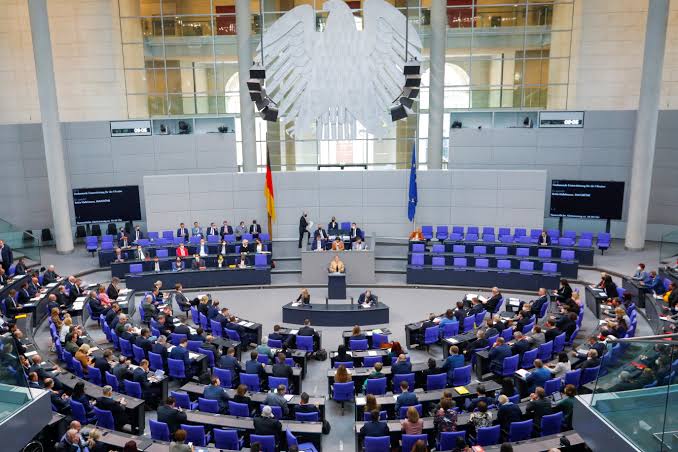
Faith Nyasuguta
Germany’s parliament has recently approved a new legislation aimed at simplifying the deportation process for unsuccessful asylum-seekers. Chancellor Olaf Scholz is addressing migration as a political challenge with these changes.
Under the approved legislation, the maximum pre-deportation custody period is extended from 10 to 28 days. The focus is on facilitating the deportation of individuals involved in criminal organizations. The law permits residential searches for identity-establishing documentation and removes the obligation to provide advance notice of deportations in certain cases.
In recent months, Germany has experienced a surge in asylum-seekers, further straining shelters already housing over 1 million Ukrainians displaced by the conflict in their homeland.
Despite rejected asylum-seekers, many may still have temporary permission to stay due to factors like illness, having a child with residency status, or lack of identification.
The effectiveness of the new rules remains uncertain, given potential challenges such as failed deportations and lack of cooperation from migrants’ home countries. Germany is negotiating agreements with nations to address these issues while exploring avenues for legal immigration.
This parliamentary decision coincides with widespread protests in Germany against alleged far-right plans, reported by an investigative outlet, to deport millions of immigrants, including some with German citizenship.
The alleged plot involved a secret meeting attended by far-right AfD politicians, neo-Nazis, and members of the Christian Democrats party.
Chancellor Scholz strongly denounced the reported plot, emphasizing that no one should face discrimination based on their origins in Germany.
In a follow-up legislative move, the German parliament has endorsed legislation aimed at streamlining citizenship rules and lifting the ban on dual citizenship. This initiative, spearheaded by Chancellor Scholz’s socially liberal coalition, represents a paradigm shift in Germany’s approach to citizenship and immigration policies.

The newly approved legislation significantly reduces the eligibility period for citizenship, from eight to five years, and in cases of “special integration accomplishments,” the period shortens further to three years.
This reform aligns with the government’s vision of fostering immigrant integration and addressing the persistent shortage of skilled workers in the German economy.
These recent legislative developments in Germany reflect a multifaceted approach to migration management. The focus on deportation process refinement coexists with efforts to counter far-right influences, foster inclusivity, and adapt citizenship rules to align with evolving societal needs.
Chancellor Scholz’s government navigates a complex landscape, aiming for a balanced and comprehensive strategy that upholds both security imperatives and humanitarian principles.
RELATED:




